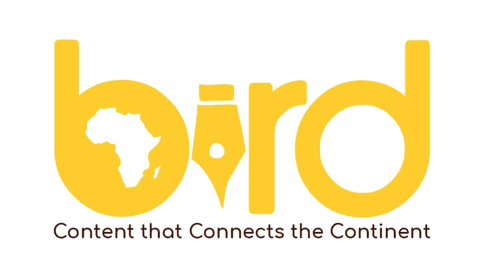The launch of the Africa Health Innovation Hub at a time when the health sector is seeing increasing e-health start-ups transforming healthcare delivery on the continent.

bird story agency
Global biopharmaceutical company AstraZeneca has launched an innovation hub that it says will pave the way for digital transformation and innovation in the health sector, starting in Kenya and South Africa.
The Africa Health Innovation Hub hub is the first of its kind in Africa and will leverage science, technology, and artificial intelligence (AI) to improve access to healthcare for patients on the continent, the company said.
The initiative is being driven through partnerships with local firms, Tricog Health and Medsol AI.
According to Gagan Singh, country president for the Africa cluster at AstraZeneca, the hub will lead to equitable and affordable access to life-changing healthcare solutions they need.
"The launch of the hub is a significant step in unlocking digital transformation and innovation in health …paving way for patient-centric digital health solutions," Singh said in a statement.
The Africa Health Innovation Hub joins a network of more than 20 hubs spread across different regions globally under AstraZeneca's Pioneering A. Catalyst Program.
The initiative will focus on education, early diagnosis, and technology and data generation.
According to Zanga Musakuzi, a Lusaka-based digital health expert, recent developments in the health sector show that "Africa is at a turning point in the digital health revolution."
"These developments have the potential to transform the continent's healthcare systems entirely," he explained.
Katheryn Malherbe, Medsol AI solutions founder and CEO, explained that the partnership would lower late-stage breast cancer diagnoses.
"Breast cancer is a devastating disease, with many women in our communities only able to access late-stage diagnoses. The Melusi Breast AI project will enable us to leverage technology and innovation to improve early diagnostic detection rates and patient outcomes in local clinics, ultimately saving lives" Malherbe was quoted as saying.
Medsol AI will promote the use of AI in disease detection through a state-of-the-art WI-FI ultrasound probe that can detect breast cancer in seconds.
In South Africa, the five-year survival rate for breast cancer patients is only 40%, according to the World Health Organization (WHO).
The Melusi Breast AI rapid detection app will be launched in rural clinics to aid early detection before a referral system takes up subsequent care and monitoring for those detected.
The Africa Health Innovation Hub will also focus on cardiovascular diseases, the leading cause of death globally, with more than three-quarters of these deaths occurring in low-and-middle-income countries.
The initiative, piloted in partnership with Tricog Health Limited, a specialist facility in cardiac care, targets Kenya, where nearly 15% of all deaths are attributed to cardiac diseases.
Charit Bhograj, Tricog Health Limited CEO, noted that early detection of cardiac complications also increases chances for patients to continue to live long, healthy lives, thus the relevance of the now-full launch.
Besides these initiatives, AstraZeneca will build talent, promote policy change for cancer screening, close gaps in healthcare access, and improve the quality of life for patients in the region.
The initiative capitalises on the emerging e-health market, promising to transform the continent's health sector.
McKinsey's March 2023 report highlights that African health systems could realise up to 15% efficiency gains by 2030 by utilising digital health solutions.
Several African countries are already seeing a surge in private sector e-health start-ups targeting diverse sections of healthcare delivery and funding to e-health start-ups has increased more than ten times between 2015 and 2022.
Disrupt Africa's 2023 start-up funding report shows e-health attracted more than US$189 million last year, a 54% year-on-year increase from 2021.
Nigeria, Egypt, and Ghana led last year's funding acquisition.
Digitisation is also on the rise in public health care systems, too. Rwanda is on course to digitise its entire health system by 2024.
Musakuzi, however, believes "there is still much work to be done with key challenges including internet and device accessibility to rural populations."
"Partnerships between the private sector, governments and healthcare providers and general stakeholders can create a viable digital ecosystem," he explained.
bird story agency





